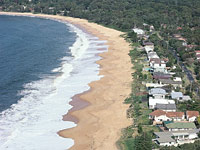Marine Science looks at all aspects of the marine environment from sea-bed currents to dolphin communication. It encompasses many sciences from geology and physics to engineering and food technology. Marine Science can be studied with an emphasis on biology, earth sciences, environmental chemistry, oceanography or physical oceanography. Marine Biologists look at life on the shore and in the oceans and estuaries, often working along side other marine scientists: for example, with geologists who study the topography of the ocean floor, sediments and marine resources; with physical oceanographers who study the waves, currents and tides; or with chemists who study the chemical composition of seawater, including the concentrations of pollutants and nutrients. Marine biologists may therefore be involved in multidisciplinary research programs that aim at understanding the interrelations between organisms and their environment.Graduates find employment in many different government departments and research organisations (for example, fisheries, marine parks, museums, CSIRO, the Australian Institute of Marine Science, universities) as well as in the tourism industry. There are two growing sectors of private industry which are providing career opportunities for marine scientists. These are consultant companies, which undertake specialist research in specific areas, and the aquaculture industry, which is cultivating an increasing number of fish, shellfish and crustaceans for human consumption as well as pearls. In addition, many of the larger energy and mineral resource companies have their own specialist research and development departments which employ marine science graduates.
Studying Marine Science at UNSWThe study of Marine Science at UNSW is primarily through the Centre of Marine and Coastal Studies
http://www.marine.unsw.edu.au/. Undergraduate programs for specialisation in Marine Science are: the Bachelor of Science, the Bachelor of Science (Advanced Science), the Bachelor of Environmental Science, the Bachelor of Environmental Science (Advanced Science) and several combined degree programs. Postgraduate study in Marine Science is also available.




